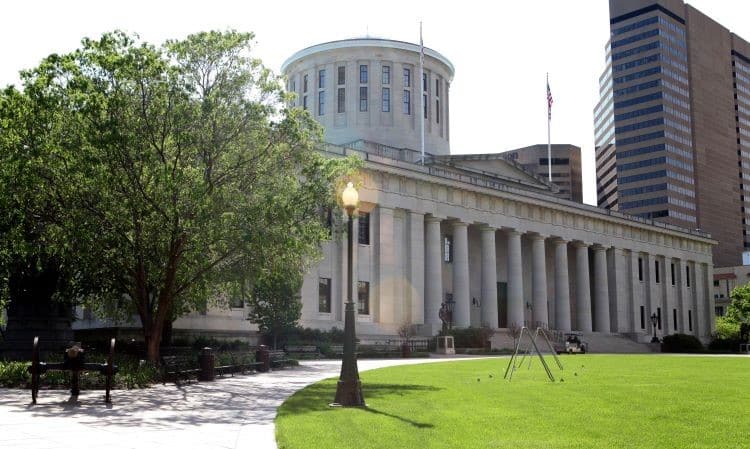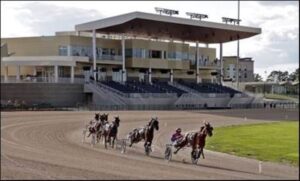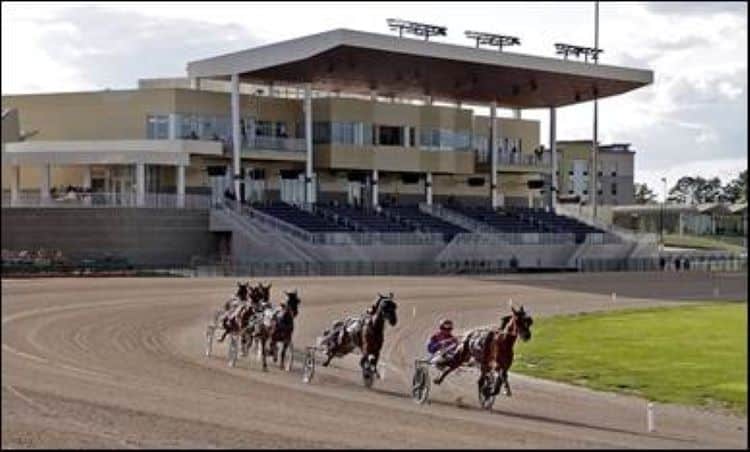Ohio’s omnibus two-year budget bill passed by the House Wednesday includes the proposed creation of a broad study commission on all aspects of the state’s gambling industry.
Tucked near the end of the massive 5,559-page legislation covering widespread state operations in the 2024 and 2025 fiscal years is a new provision stating the “study commission on the future of gaming in Ohio is established.” The overall bill was approved and sent to the Senate by a 78-19 vote.
It would create an 11-member panel made up of four House members, four Senate members, and designees representing the Ohio Casino Control Commission, Ohio Lottery Commission, and Ohio State Racing Commission. They would be charged with reporting recommendations to the General Assembly by June 30, 2024, on all aspects of gambling in the state, including the new sports betting.
One such aspect could be the level of the state’s sports gambling tax rate of 10%. A proposal by Gov. Mike DeWine to double the rate to 20% was included in the initial version of the budget bill, HB 33, but the increase was quietly removed by the time the full House voted.
No public support was offered for a tax proposal that would so quickly have affected an industry that only launched Jan. 1. In its first two months, sports betting generated total revenue of nearly $292 million, with $29 million of that directed to the state.
The larger than expected revenue was evidently responsible for a change in how HB 33 would allocate sports gambling funds, with a new cap of $15 million set on the annual amount for interscholastic sports and extracurricular activities, as opposed to general education purposes.
The House-approved bill would also expand from five to seven the number of Type B retail sportsbooks that could potentially operate in the state’s largest counties — Franklin, Cuyahoga, and Hamilton.
One study commission in place of others
Ohio’s original sports gaming law enacted in December 2021 called for creation of two different legislative panels with temporary mandates for studies — a nine-member Select Committee on Sports Gaming and Problem Gambling and a six-member Joint Committee on Sports Gaming.
The wording attached to the committee exploring problem gambling issues called for it to report by Jan. 1, 2022 — a practical impossibility less than a month after the bill was signed into law — so the provision was out of date by the time of enactment, and that panel was never appointed. Legislative leaders, meanwhile, have made no moves either toward creating the Joint Committee on Sports Gaming.
The new budget bill sponsored by House Finance Committee Chairman Jay Edwards, who was not available for comment, crosses out references to that joint committee and its focus on sports betting. It substitutes for that with creation of the broader gambling study panel.
The commission would be mandated with examining “the implementation of sports gaming” and “the current status” of the state lottery, casino industry, and horse racing in Ohio. The panel would make recommendations by mid-2024 concerning the future of each, including legislative proposals to make changes.
“The study commission shall submit a report of its findings and recommendations to the General Assembly not later than June 30, 2024. After it submits its report, the study commission ceases to exist,” HB 33 states on page 5,534.
Adjusting funds, retail sportsbooks
The 2021 law created a Sports Gaming Profits Education Fund, using half of the tax revenue to support interscholastic athletics and other extracurricular activities, and half for more general education purposes.
That was before anyone knew how much tax revenue the new industry might provide, and with January having broken national records for revenue in any state, the $29 million so far vastly exceeds any estimates.
Presumably because the 50% provision for athletics/extracurriculars may far exceed the amount that could reasonably be used for them in a year, HB 33 now has new wording referring to those purposes receiving “the lesser of fifty per cent of the amount deposited or fifteen million dollars.” Based on revenue thus far, the cap of $15 million would become the annual funding.
In the case of Type B retail sportsbooks, the state’s three counties of more than 800,000 residents are to have a maximum of five such venues under the original law. The bill proposes increasing the allowable number to seven for Franklin, Cuyahoga, and Hamilton.
While making it possible for the largest counties to have six more retail sportsbooks total, in practical terms the number overall in the state would still be below the 40 set as a cap under current law. Smaller counties are able to have fewer sportsbooks than five, with the number varying based on population, and not all potential licenses have been claimed. There are 14 Type B sportsbooks currently in operation, with other licenses pending.
Photo: Getty Images








